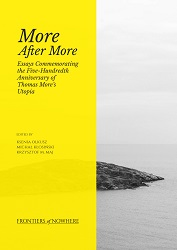
We kindly inform you that, as long as the subject affiliation of our 300.000+ articles is in progress, you might get unsufficient or no results on your third level or second level search. In this case, please broaden your search criteria.

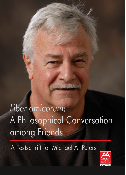
‘Almost certainly we are witnessing a shift to...a market individualism of neoliberalism where the self is shaped as a utility maximiser, a free and contractual individual, who is self-constituted through the market choices and investment decisions that he/she makes....In the face of increasingly technical and functional forms of literacy and of schooling, we might inquire whether school in an age of consumerism promotes a relation to the self based on truth-telling or whether this relation has been replaced by another primary ethos: happiness, security, survival, success, ‘self-improvement,’ wealth.’ (Besley and Peters, 2007: 18)
More...
Kada posebno govorim o modernim teorijama o partizanima, onda radi pojašnjenja teme moram naglasiti da stare teorije o partizanima nasuprot modernim ovde u stvari i ne postoje. U klasičnom ratnom pravu dosadašnjeg evropskog međunarodnog prava nema mesta za partizana u modernom smislu reči. On spada ili - kao u kabinetskom ratu XVIII veka - u neku vrstu lakših, naročito pokretljivih, ali regularnih trupa, ili je, kao naročito gnusan prestupnik stavljen jednostavno izvan zakona, on je hors la loi. Sve dok se u ratu zadržalo još nešto od predstave o dvoboju sa isukanim oružjem i viteštvom, to i nije moglo biti drugačije.
More...
»Nije čudno što se stara engleska reč foe (protivnik) probudila iz svog arhaičnog četvorovekovnog sna i u poslednje dve decenije, uz reč enemy (neprijatelj), ponovo ušla u opštu upotrebu. Kako bi se onda mogao, u jednoj epohi koja istovremeno proizvodi sredstva za nuklearno uništenje, i briše razliku između rata i mira, sprečiti tok promišljanja koje za predmet ima razlikovanje između prijatelja i neprijatelja? Sadržaj pojma rat još uvek je veliki problem, i rat postaje cinična igra, organizovanje kavgi, ili prazno samoobmanjivanje, ukoliko nije, sa obe strane, ograničen relativizacijom neprijateljstva.«
More...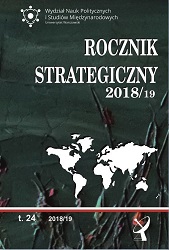
The article discusses Poland’s foreign policy in 2017/2018. The governmentcontinued the implementation of main foreign policy plans adopted after the Lawand Justice party came to power. It showed scepticism towards further deepeningof European integration, but it did not present any official proposals of EU reforms.Poland’s position in the EU was weakened by the rule of law control mechanisminitiated by the European Commission. Bilateral relations between Poland andWestern European countries were limited. There was no breakthrough in the East,in relations with Belarus, Russia, and Ukraine. Opportunities for development ofcooperation within the Visegrad Group, the Three Sees and the Nine of Bucharest were explored. As in the past, its security policy was determined by the fear ofRussia’s policy. It was focused on NATO and cooperation with the United States.Postulates of permanent presence of American soldiers in Poland were formulated.The government has not used the 100th anniversary of Poland’s independence toorganize international celebrations.
More...
The aim of the paper is to determine whether Donald Trump’s foreign policyemploys a power politics perspective. The proposed hypothesis states that theprimary goal of President Trump’s foreign policy is a great powers competition.The paper is divided into three parts. Firstly, research design is presented. Secondly,empirical analysis of four selected issues is conducted: (1) Donald Trump’s politicalbeliefs; (2) released US strategic documents; (3) institutional change in the field offoreign policy making; and (4) the shape of defence budget. In the final part, thehypothesis is confirmed at the level of President Trump’s political beliefs (fully) andthe US strategic documents (partly), however, at the level of institutional change andthe defence budget shape it is hard to find unambiguous conclusions. As a result, thepower politics approach declared by the US President – considered by some expertsas realism on steroids – is, in fact, implemented only selectively. The research strategyused is a case study. The method of data acquisition is qualitative text analysis.
More...
The aim of this article is to examine, from the perspective of power politics,Turkey’s foreign policy after the so called Arab Spring, particularly in the last fewyears (2015–2019). The author answers the following questions: Has power politicsin Turkey’s foreign policy intensified? If so, how does it manifest and how is it different from the policy of the first decade of the 21st century? Is it justified toclaim that Turkish foreign policy has turned back to the 1990s model? What are thereasons for the current change in the foreign policy of Turkey? The text providesarguments that in the last few years there have been elements of power politics inTurkish foreign policy, which have been the result of adaptation, i.e. keeping theparadigm and main directions of the policy unchanged while making more frequentuse of hard power tools in relation to soft power measures which are still applied.The current incarnation of Turkey’s foreign policy is a reaction to specific externaland domestic determinants, similar to those in the 1990s (though not the same) andleading to re-securitization of Turkish policy as well as to attempts to enhance itsweakened regional position.
More...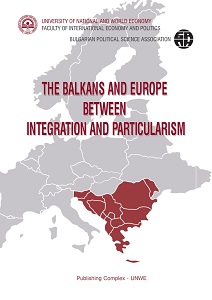
An erudite academic lecturer and researcher in the field of Balkan history, a competent and committed leader and intellectual boheme who dedicated his entire professional lifeto History, to the department of International Relations at UNWE and to higher education in Bulgaria.
More...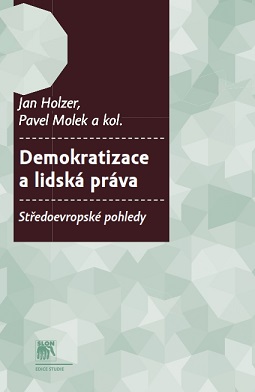
Na předchozí kapitolu věnovanou teoretickému uchopení nedemokratických režimů a jejich demokratizačních trajektorií nyní navážeme přehledem příslibů a výzev demokratizace v podání teorií a koncepcí demokracie, zaměřených na již etablované demokratické politické režimy. Jelikož však na vyhrazeném prostoru nelze podat jakkoliv komplexní obraz tohoto gigantického výzkumného pole, neboť teorie demokracie se koneckonců nějak dotýkají všech témat reflektovaných v této monografii, pokusíme se v této kapitole o výklad pokud možno kompaktní a zároveň zasazený do přehledného – byť vědomě parciálního – výkladového rámce. Nejobecnějším vodítkem je autorské přesvědčení, že teorie demokracie není možné vydělovat ze širšího kontextu normativní politické teorie (politické filozofie), což s sebou ovšem nese několik důsledků. Jedná se o předběžné teze, jejichž prostřednictvím bude tato kapitola strukturována: za prvé, politická teorie je vnitřně pluralitní disciplína, což se odráží i v demokratické teorii a komplikuje to jednoznačné a „snadné“ závěry o povaze existujících demokratických režimů (empirický aspekt), stejně jako o demokracii, „jaká má být“ (normativní aspekt).
More...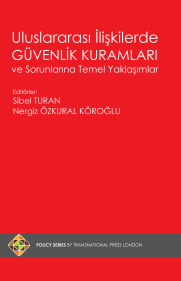
Uluslararası ilişkilerin en temel kavramlarından bir tanesi de güvenliktir. Günümüzde güvenlik kavramının net bir tanımlaması olmamakla birlikte ülkelerin kendi çıkarları doğrultusunda yaptıkları tanımlar disiplin içinde yerini almıştır. Devletlerin varlıklarını sürdürmeleri için güvenliğin elzem bir unsur olduğu kabul görmüş bir gerçektir. Uluslararası ilişkilerin dinamik yapısı ile devletlerin güvenlik algıları ve buna bağlı olarak güvenliklerini sağlamak için izledikleri yöntemler değişiklik göstermektedir. Kimi zaman başarılı diplomatik ilişkilerle, kimi zaman da etkili silahlanma ile güvenlik sağlanmaya çalışılmaktadır. Günümüzde gelişen teknolojinin itici gücü ve ülkelere sağladığı saygınlık ile caydırıcılığı yüksek ve kitle imha silahları içinde tahrip gücü en fazla olan nükleer silahlar dikkat çekmektedir.Bu durum ise uluslararası nükleer güvenlik sorununu meydana getirmektedir.Tarihte dünya nükleer silahların dehşet verici etkisine sadece bir defa ABD tarafından Japonya’ya karşı 1945 yılında kullanıldığında şahit olmuştur. O tarihten sonra nükleer silahlar bir daha kullanılmamış fakat ülkeler nükleer silahlanma yolundan da vazgeçmemişlerdir.Özellikle İki kutuplu düzenin hakim olduğu Soğuk Savaş yıllarında nükleer tehdit zirve noktasına ulaşmış ve dünya nükleer felaketin eşiğinden dönmüştür.
More...
Bu teori ulus devletlerin ilişkileri ve devlet ilişkilerini yöneten neorealist teori tarafından tanımlanan dominant faktörlerle ilgilidir. Savaş, barış ve uluslararası rekabete yönelik özel kaygıların ortaya çıkması nedeniyle Neorealist teori, üzerinde entelektüel seviyede bir çalışma yapmak amacıyla uluslararası politika alanını diğerlerinden ayırmıştır. İran’ın dış politikasında gerek bölge, gerekse dünya politikasında ve özellikle silahlanma konusunda neorealist güvenlik esaslarını gözlemlemek mümkündür. Bu makalede Neorealist kuram açıklanacak ve ardından İran’ın dış siyasetindeki Neorealist esaslar incelenecektir.
More...
Uluslararası İlişkiler disiplininin genç kuşak teorilerinden biri olan Sosyal İnşacılık (Konstrüktivizm), 1990’lı yıllarla birlikte popüler hale gelmiş ve disiplin içinde yoğun bir şekilde tartışılmıştır. Neo-realizm başta olmak üzere, Uluslararası İlişkiler’de yer alan pek çok teorinin maddi unsurları analiz birimi haline getiren yaklaşımına tezat olarak, Sosyal İnşacılık askeri güç ve ekonomik kapasite gibi maddi güç unsurlarının dağılım durumunun devletler arasındaki ilişkileri nasıl belirlediğiyle ve bir aktör olarak devlet davranışlarını nasıl açıkladığıyla ilgilenmektedir. Teoride maddi unsurların önemi reddedilmese de devletler arası ilişkileri ve uluslararası sistemi belirleyen kaynağın sosyal nitelikte olduğunu ileri sürmektedirler. Bu durum, Sosyal İnşacıların sosyal ve siyasi ortamı, insanî farkındalığı göz ardı eden fiziksel bir birim veya maddi bir nesne olarak tanımlamaktan kaçınmalarını beraberinde getirmektedir. Dolayısıyla teoride Uluslararası İlişkiler çalışmalarının daha ziyade uluslararası arenada aktörlerin davranışlarına ilişkin bilgiler veren düşünce ve inançlar üzerinde yoğunlaşılması gerektiğine dikkat çekerler.
More...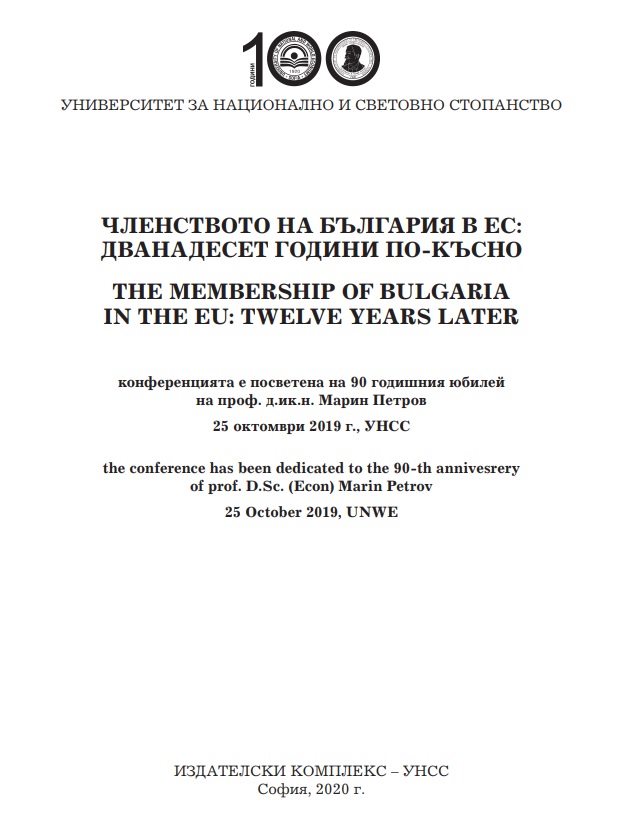
Over the last few decades, a global revival of the Islamic economy is observed. Islamic economics and finance are not unusual terminology and philosophy at present. Since the last global financial crisis (2007- 2008), a great deal of attention has been paid to this issue by a number of scientists and specialists around the world. There is a striving to identify a new economic paradigm with the pretense of finding a solution to existing economic problems. Predominantly Islamic, but not only, scientists are arguing about the ability of the Islamic economy to turn into the political and economic science of finding the necessary solutions. The purpose of this publication is to point out facts and try to compare the contemporary Islamic economics to the other political economies.
More...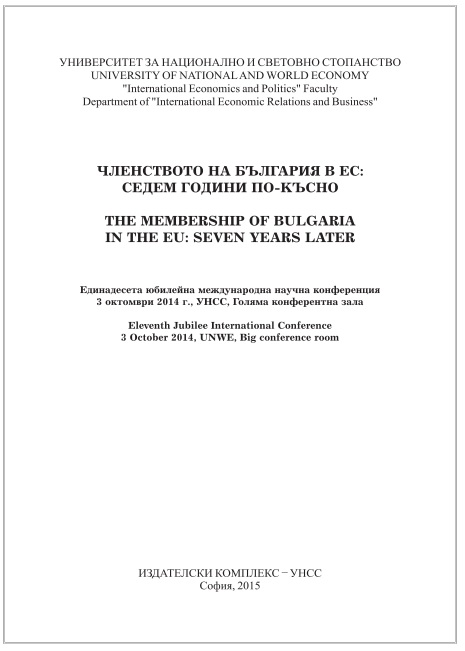
Management culture often stays in the background when analyzing the factors for the successful management. The purpose of this article is to present a new approach to the study of the culture of the leader as a factor in the implementation of the European policies and good practices in a local government. To measure the impact of the management culture, we need an approach that takes into account the complex structure of the culture factor and to build an acceptable structure of the factor from the point of view of our research. That is why we analyze the latest research and publications in this field which give us a satisfactory variety of elements, they are based on scientific research and arguments and do correspond to the European standards for good governance in local administration. In accordance with the European and international cultural standards for the successful leader in the public sector, a final structure of the management culture in the local administration has been prepared.
More...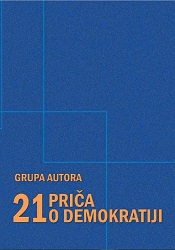
Defining human rights is very complex issue. Basic agreement regarding the minimum of generally accepted, universal standards and mechanisms for their implementation are the first step towards establishment of necessary level of operative system of protection of human rights, as on national level, thus on international plan. Human rights are basic political and socio-economic requirements of citizens in relation to state authorities and society in general and their fulfillment is a precondition for biological, political and cultural existence of an individual and a life worthy of man, his human nature and dignity. They are a result of specific character of man, as the most perfect, reasonable planetary being, his nature and general nature of the relations between people. Basic material source of natural rights of the individual is inborn individuality of human autonomy and inborn human dignity resulting from it. Respect of human rights is very important condition for normal and regular functioning of every state system and society, a factor from which general development and progress greatly depends. Until the end of the Second World War human rights have been in exclusive competence of the state. In the end, these conceptions have resulted in extermination of whole nations in the Second World. Undoubtedly, this has additionally motivated the authors of OUN and Charter to internationalize these issues. Unfortunately, we still cannot speak about efficient and comprehensive system of international protection because of limited and insufficiently precise competences of international community in this regard. Contemporary international law of human rights is based on existence of huge number of various international bodies and institutions, whose goal is the protection of individual- as from domestic thus from any foreign state. Although all of those procedures and international legal remedies are still insufficient and inefficient, existing corpus of human rights proscribed by regulations of the international law and increasing number of bodies in charge for control of their implementation have managed to institutionalize the issue of human rights above all expectations. In that way, political and cultural climate was created wherein protection of human rights has become a priority issue on a global political scale.
More...
Concept of autonomy and Kant’s definition of autonomy. Culture as second nature - where autonomy of individual lies. Moral responsibility as an indicator of autonomy of individual. Five responsibilities of morally autonomous individual: towards oneself, towards close persons, others, profession and society and the state one lives in. Types of responsibility: individual and collective, political, criminal, civic and disciplinary. Two moral approaches: deontological and pragmatic. Importance of moral autonomy of intellectual for social and political life. Criticism and control of political power and authority of morally autonomous intellectuals. Attitude of the intellectual towards mistakes and manipulation in politics. Human rights and moral autonomy.
More...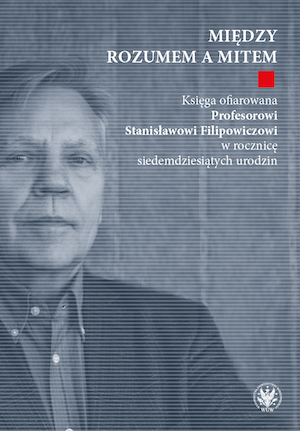
The figure of a ‘City upon a Hill’ (New Jerusalem) occupies a distinctive position in the system of symbolic images characterising the American republic. It provides a crucial interpretative key for the American political project. The vast literature on this subject leads many scholars to a misperception: they tend to project the Puritan mindset, typical for New England, upon the entire English colonisation in America and, while doing so, overlook the diversity of the American political tradition as well as the fundamental role played by regions in shaping a complex identity of the burgeoning American society. This paper presents an alternative and lesser-known concept of America as a New Troy and captain John Smith as an American Aeneas, which emerged in the Southern colonies soon after the establishment of Jamestown. The figure of New Troy contains a semantic field which implicates the interpretation of American political tradition in the alternative or even antithetic terms to that of New Jerusalem. The teleocratic, highly moralistic and, according to some scholars, even gnostic concept of the ‘republic of saints’ was contrasted by Southerners with the conservative vision of a nomocratic political order, sanctioned by tradition and dedicated to the preservation of the status quo. This paper argues that by discussing and contrasting both visions, we can better understand the cultural roots of specific fundamental differences in the mindsets of Americans living in different regions of the United States, both from a historical and contemporary perspective.
More...
The figure of Leviathan makes the title of the most important political treatise written by Thomas Hobbes. Why then this figure seems to be absent in the famous introductory picture to the philosopher’s work? This essay aims to extricate various meanings of Leviathan hidden in the right flank of this book’s frontispiece.
More...
The question of a rational attitude to the world of politics has been with us since the ancient beginnings of philosophy and makes us reflect today. Is the philosopher’s view of the political reality more penetrating, and is his judgment more balanced than the views of ordinary people? It is worth looking at one of the first answers to this question – a metaphorical answer which, due to the complex and labile nature of the political matter, not so much solves the issue but instead gives food for thought and invites thinking. Starting from the image of the cave outlined by Plato in Book 7 of his Politeia, this text tries to shed some light on the role and fate of the philosopher engaged in political thinking.
More...
The paper undertakes the problem of the relationship between academic freedom and the pursuit of cognition of truth. The question of the freedom of science appears for the first time in the writings of Aristotle, who associates the freedom of cognition with its ‘non-utility’, i.e. the absence of goals that treat cognition instrumentally, and with the freedom of the researcher from the influence of non-scientific factors (e.g. pressure of power, economic interests). In Aristotle’s opinion, practical and productive sciences are more necessary but less worthy. In Plato’s understanding, the freedom of science is closely related to the freedom from the obligation to deal with politics. The author analyses to what extent these concepts of academic freedom are valid and realised today. This is done in relation to the way the four classical faculties function and the ‘fifth faculty’, i.e. the natural sciences. The current relationship between science and politics is also examined in more detail.
More...